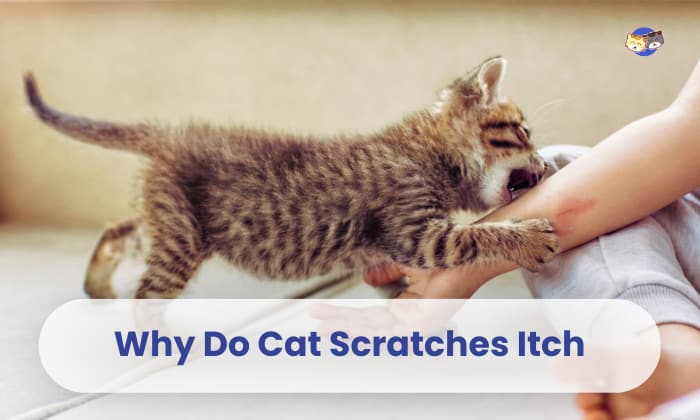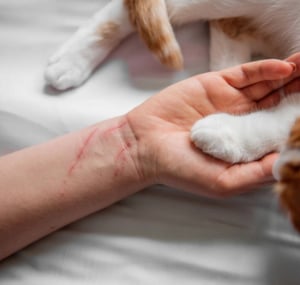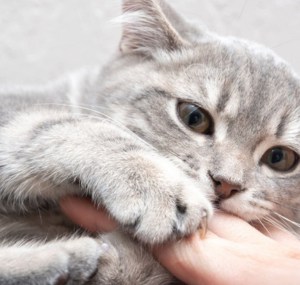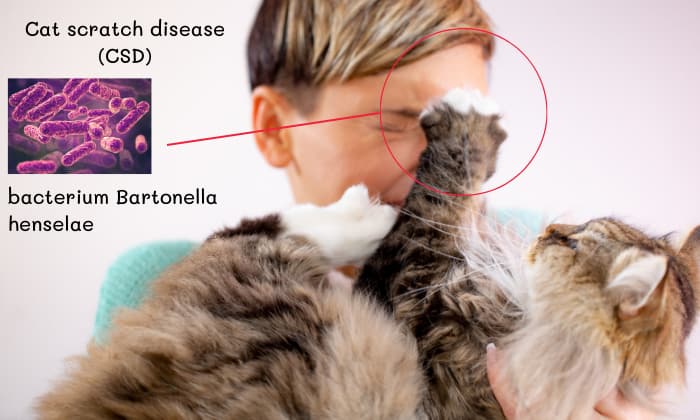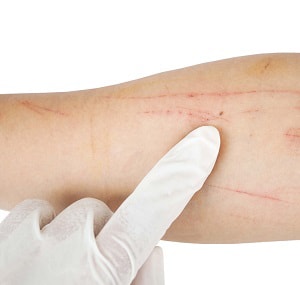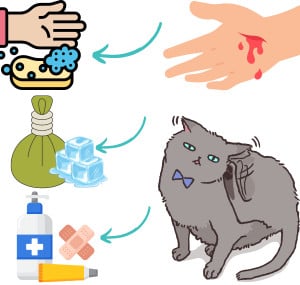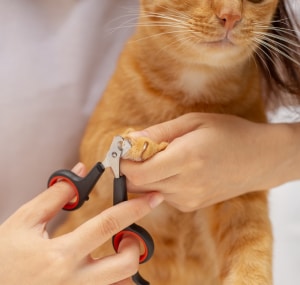Have you ever wondered, “Why do cat scratches itch”? This happens because itching is the body’s normal reaction to an injury or, in some cases, a bacterial infection.
In this article, we’ll delve into the science underlying the itchiness of cat scratches and offer tips for prevention and relief for your pet.
Table of Contents
Why Do Cat Scratches Itch on Humans?
Cat scratches can occur while playing with cats and may cause discomfort or lead to an itchy sensation due to the wound. So, what exactly causes cat scratch itching? Is it actually dangerous? The detailed answer is provided below.
1. It’s your body’s natural response
Cats, while playing, don’t normally scratch or bite you very hard. Most of the time, the scratches are not threatening because they are small and do not cause significant harm. They seem like tiny cracks in the skin and may make you feel itchy and uncomfortable because they’re in the healing process.
My cat scratched me, should I be worried?
There is no need to be anxious if you feel a bit itchy after cat scratches. Clean the wound thoroughly with soap and water; the itch will disappear in a few days.
2. You may get a bacterial infection
When a cat scratches, its sharp claws create a wound allowing bacteria from the cat’s saliva, nails, or fur to enter, causing an infection that triggers an itching sensation.
If the cat scratch still itches after a few days or worsens, you might have caught cat scratch disease.
Moreover, if the cat scratches itch and swells, it indicates an allergic reaction to cat scratches.
People allergic to cat scratches can get a fever, fatigue, headache, and loss of appetite. Additionally, you may have tiny, itchy bumps from a cat scratch.
If the lymph nodes in the affected area become swollen, tender, or painful, seek medical assistance immediately.
Cat Scratch Disease – a Bacterial Infection Caused by Cats
Cat scratch disease (CSD), or cat scratch fever, is an infectious disease caused by a bacterium called Bartonella henselae. It typically occurs after a scratch or bite from a cat.
While most people recover without treatment, others with severe instances may need antibiotics or other medical help. CSD is not contagious among humans but can be transmitted to cats and other animals.
If you have a rash from cat scratches, it may be a sign of cat scratch disease. Look into this disease in the information below.
1. Symptoms
Cat-scratch disease symptoms usually appear within 3-14 days of exposure and may include the following:
- A small bump or blister at the site of the bite or scratch
- Swollen lymph nodes, especially in the armpit, neck, or groin
- Fatigue
- Fever
- Headache
- Muscle aches
- Loss of appetite
In some cases, the symptoms can be more severe and include:
- Pus or drainage from the scratch or bite
- Redness and swelling around the scratch or bite
- Abdominal pain
- Joint pain
Suppose you have been scratched or bitten by a cat and are experiencing any of these symptoms.
In that case, you should seek medical assistance immediately. CSD will usually go away on its own. Still, in rare cases, it can lead to more serious consequences, especially in people with weakened immune systems.
2. Treatment
Cat scratch disease is a bacterial infection that usually does not require treatment and improves over time without treatment. However, antibiotics are used to treat worse cases. Anti-inflammatory drugs can be used to ease swelling and pain. In case of serious symptoms, you should contact a doctor.
However, if you don’t have CSD but are still uncomfortable by the itch, here are 4 ways to stop cat scratches from itching:
- Clean the scratch: To remove any bacteria that could cause more irritation, rinse the scrape with cool water and mild soap.
- Apply a cold compress: Apply a cold compress to the affected region with a clean cloth or an ice pack covered in a towel. This can help to reduce swelling and itching.
- Apply an over-the-counter cream: An antibiotic ointment or cream can help relieve irritation and swelling caused by cat scratches.
- Cover the scratch with a bandage to avoid further irritation and scratching.
These methods to heal a cat scratch itching only work when your wound is small and just a few light scratches. However, you must go to the doctor if you have serious symptoms.
3. Diagnosis
There is no gold standard for diagnosing cat scratch disease. Clinicians rely on a variety of diagnostic tests as well as a strong clinical suspicion for the disease based on symptoms. Blood tests can be done to detect antibodies to the bacteria that cause CSD.
It’s important to see a healthcare provider if you suspect you may have cat scratch disease or any other infection. Early diagnosis and treatment can help prevent complications.
4. Prevention against cat scratch disease:
Cat scratch disease can be prevented by taking some simple measures. Here are some ways to prevent cat scratch disease:
- Avoid contact with stray or unfamiliar cats, especially kittens.
- Wash scratches or bites with soap and water immediately.
- Keep your cat’s nails trimmed.
- Avoid rough play with cats that could lead to a bite or a scratch.
- Teach children to be gentle when playing with cats.
- Keep cats indoors and administer anti-flea medication.
- If you have a weakened immune system, avoid contact with cats altogether.
Taking these precautions can significantly reduce the risk of contracting cat scratch disease.
Conclusion
Why do cat scratches itch? In conclusion, cat scratches can cause itching due to the body’s natural response to injury or bacterial infection. It is critical to clean and treat the cat scratch itchy bumps appropriately to prevent infection and irritation.
Seeking medical assistance may be necessary if symptoms persist or worsen. Furthermore, steps such as cutting a cat’s nails and avoiding rough play with cats when playing with them can help minimize cat scratches and itching.

I am Amy Sawy, a Doctor of Veterinary Medicine (DVM) graduate from the University of Kansas. y husband, Dr. Plummer, and I own a veterinary clinic in Phillipsburg, Kansas. In addition to my professional background, I am a devoted pet owner myself, with a household that includes dogs, rodents, and most notably, cats – a total of five felines in my home.
In 2020, I joined an organization as a professional writer, leveraging my experience and collaborating with my team to deliver the most valuable information for your cat’s care.


